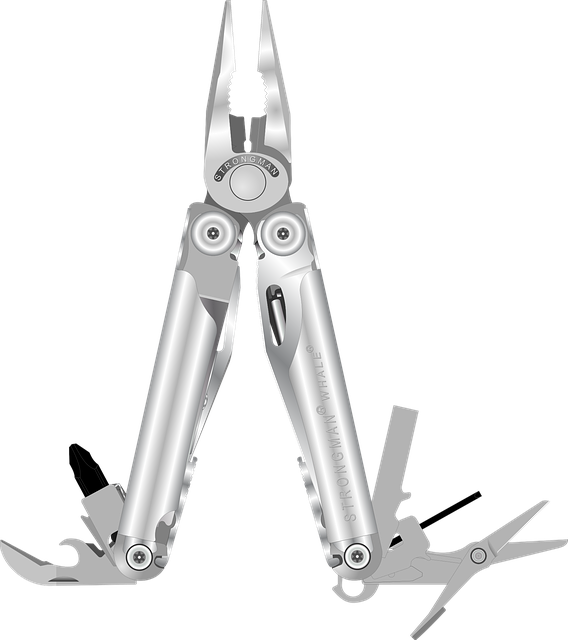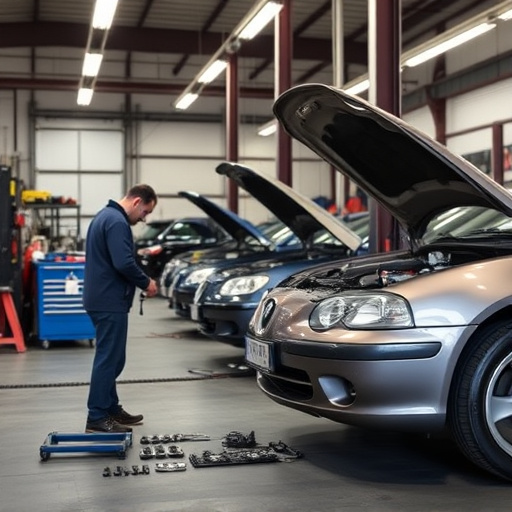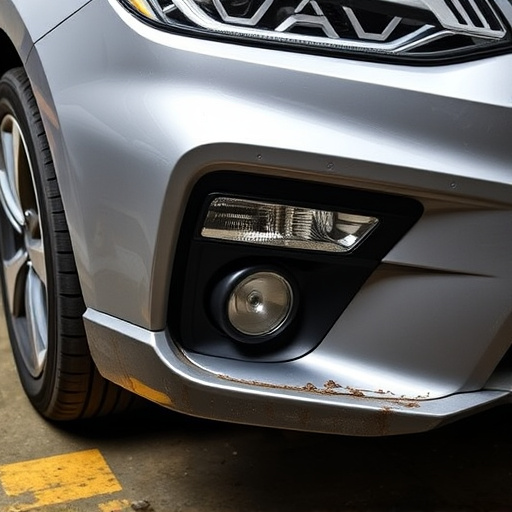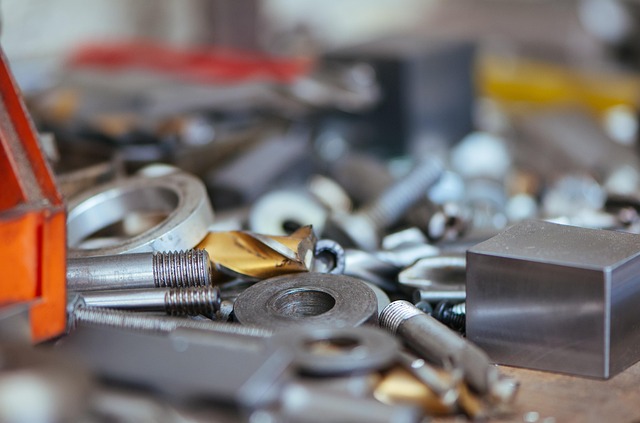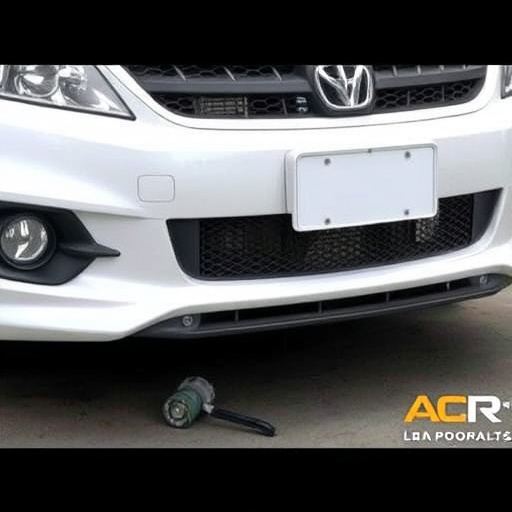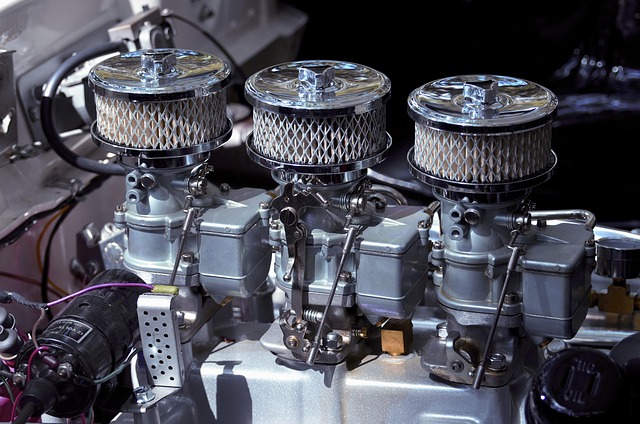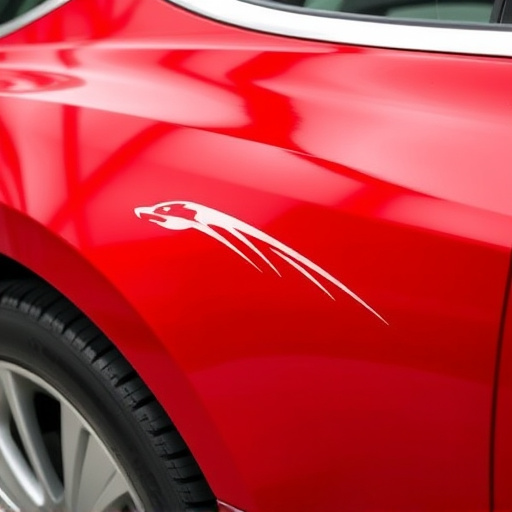The future of partial panel replacement in the automotive industry is shaped by advancements in material science, particularly innovative materials like advanced composites (e.g., carbon fiber-reinforced polymers) and their superior strength-to-weight ratios. These materials enable more efficient and precise repairs, preserve structural integrity, promote fuel efficiency through reduced vehicle weight, and minimize environmental impact. Smart technologies integrated into these composites further enhance their longevity by allowing self-healing capabilities, reducing the need for frequent partial panel replacements. This trend streamlines repair processes, cuts costs, and caters to the growing demand for sustainable, cost-effective, and eco-friendly car bodywork in a competitive market.
The future of partial panel replacement technologies is promising, with advancements that promise to revolutionize industries across sectors. This article delves into three key trends shaping this evolving field: material science breakthroughs for lighter, stronger components; digitalization and automation streamlining design and installation; and a growing emphasis on sustainability and cost-effectiveness through eco-friendly materials and modular systems. By exploring these innovations, we gain insights into the transformative potential of partial panel replacement technologies in today’s market-driven landscape.
- Advancements in Material Science for Partial Panel Replacement
- – Exploring innovative materials and their properties
- – Benefits of using advanced composites and lightweight materials
Advancements in Material Science for Partial Panel Replacement

The future of partial panel replacement is closely tied to advancements in material science. Researchers are developing innovative materials that offer superior strength-to-weight ratios, making them ideal for automotive applications. These new materials can be molded into complex shapes, allowing for more precise and lighter components. This not only enhances the structural integrity of vehicles but also contributes to improved fuel efficiency. By reducing the overall weight of a vehicle, these advanced materials play a crucial role in mitigating environmental impact.
Furthermore, the integration of smart technologies with these new materials opens up exciting possibilities for autonomous repair systems. For instance, self-healing composites that can automatically mend minor scratches and dents, similar to car scratch repair and auto dent repair processes, are being explored. These materials can sense and respond to damage, ensuring that vehicles remain in optimal condition. This not only extends the lifespan of vehicle components but also reduces the need for frequent partial panel replacements, thereby saving time and money for both manufacturers and consumers.
– Exploring innovative materials and their properties

The future of partial panel replacement technologies lies in exploring innovative materials and their unique properties. Researchers are constantly seeking lightweight alternatives to traditional metals, such as advanced composites and carbon fiber, which offer superior strength-to-weight ratios. These materials not only enhance vehicle performance but also contribute to improved fuel efficiency, a key focus in today’s eco-conscious automotive landscape.
As the demand for sustainable and cost-effective car bodywork services grows, collision centers are incorporating these new materials into their practices. The ability to seamlessly integrate partial panel replacements using advanced composites could significantly reduce repair times and costs, making auto bodywork more accessible and efficient. This shift towards innovative materials promises a greener and more dynamic future for the industry, catering to evolving consumer needs and environmental regulations.
– Benefits of using advanced composites and lightweight materials

The automotive industry is witnessing a significant shift towards adopting advanced composite materials and lightweight alloys for partial panel replacement in vehicle body repair. This trend offers numerous advantages, especially in modern car dent repair processes. Composites such as carbon fiber-reinforced polymers (CFRP) provide exceptional strength-to-weight ratios, enabling the creation of lighter and more durable vehicle components. By utilizing these advanced materials, automotive body shops can significantly reduce the overall weight of vehicles, leading to improved fuel efficiency and lower environmental impact.
In the realm of partial panel replacement technologies, lightweight composites allow for easier and faster repairs in car dent repair scenarios. These materials can be molded and shaped with precision, ensuring seamless integration into vehicle bodies. As a result, the structural integrity of the vehicle is preserved, and the need for extensive metal fabrication is reduced. This not only streamlines the vehicle body repair process but also minimizes costs for both manufacturers and consumers, making it an attractive option in today’s competitive automotive market.
As we look ahead, partial panel replacement technologies are poised to revolutionize the automotive industry. Advancements in material science, particularly the development of advanced composites and lightweight materials, offer significant benefits in terms of durability, performance, and cost-effectiveness. These innovations not only enhance the overall efficiency of vehicle manufacturing but also contribute to a more sustainable future by reducing weight and minimizing waste. With continued research and development, we can expect further breakthroughs that will make partial panel replacement even more accessible and efficient, ensuring a safer and greener driving experience for years to come.
